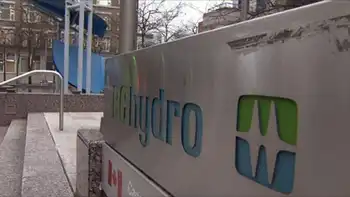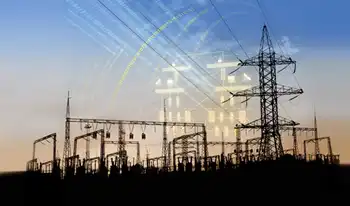Millions begin Chinese holiday without power
By Reuters
Protective Relay Training - Basic
Our customized live online or in‑person group training can be delivered to your staff at your location.

- Live Online
- 12 hours Instructor-led
- Group Training Available
Scores have died in snow-related accidents in the run-up to the Lunar New Year holiday on February 6, normally one of the greatest annual migrations of humanity, with the traditional travel chaos compounded by the coldest winter in 100 years across vast swathes of south, central and eastern China.
Whole cities have had their power and water cut off for more than a week and 11 electricians have been killed trying to reconnect lines or break ice encasing poles and cables. Livestock and crops have been destroyed.
Chenzhou, a city in the central province of Hunan and the worst hit, began its 12th day without power.
"It is now connected with the provincial power grid, and its 4 million residents are likely to see power and water supply resume later," Xinhua news agency said.
More than 5,000 electricians, including 2,000 summoned from other provinces, were struggling to repair damaged power lines and pylons.
About 1,000 pylons and poles had collapsed under the weight of ice and snow, which means the local grid, that took decades to build, had effectively been destroyed, Xinhua said.
"Chenzhou residents have to collect coal and charcoal to warm themselves, which caused the prices to surge tenfold."
Rising prices of coal, vegetables, pork, rice and other staples have added to the holiday misery, but the sea of travelers waiting for trains, especially in Guangzhou in the south, had cleared.
Many mostly poor, migrant workers had already given up trying to get a ticket and opted to stay put.
"Millions of Chinese had to say 'sorry' to their loved ones," Xinhua said.
The remote township of Wengxiang in the snowy mountains of Guizhou hasn't had electricity since January 14, many residents said. They also have to negotiate steep, icy paths to fetch water in buckets because pipes are frozen or cracked.
"At night, it's like a blanket of darkness," said Pan Zhengkai, adding that families ate their dinner at 4 pm before darkness set in.
"I guess we'll have to have the new year celebrations in darkness." he said. "We can't afford candles."
Asked if the villagers had received any assistance, he said the government never did enough.
"We haven't received any help for the floods last year," he said, referring to summer rains which brought down houses and collapsed terraced fields. "The government always promises a lot, but down here it seems that nothing ever arrives."
But the holiday preparations continued, including a group of small boys and young men, roosters under their arms, getting ready for a cockfight.











